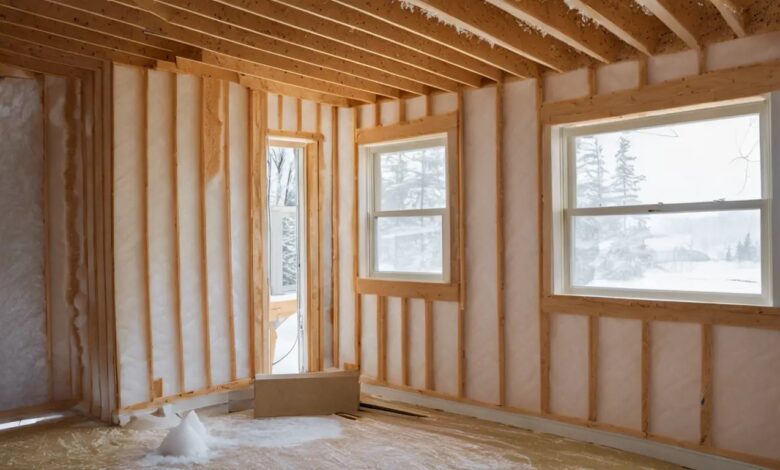How Spray Foam Insulation Enhances Indoor Air Quality and Comfort

Healthy living means indoor air quality to the best of its kind. Poor air quality inevitably leads to health issues. Therefore spray foam insulation helps in all its setup. Home air quality becomes good by closing gaps and cracks with this type of insulation. It keeps allergies, moisture, and contaminants out. This article discloses how spray foam insulation richmond va improves indoor air quality and comfort.
Closing the Cracks and Gaps
Homes leak. Cracks and gaps develop with time. These openings exist in the walls, attics, and basements. Conventional insulation rarely seals gaps. This enables outside and indoor air to pass through without hindrance. Spray foam insulation is perfect in these areas. It sets after being applied. A tight seal keeps air out. Now spray foam insulation virginia prevents air leaks, thus stabilizing the interior atmosphere.
Reduce Allergen Entry
Many allergens bring about respiratory problems. Pollen, dust mites, cat dander, and mould may find their way into your home. Gaps in insulation allow entry of allergens. Spray foam insulation reduces indoor allergies. Sealing your home decreases entry of allergen. Insulated homes reduce allergy issues. This enhances comfort and well-being.
Moisture Problem Prevention
Moisture greatly affects indoor air quality. High humidity promotes mold. Mold spores may cause respiratory problems and other health difficulties. Dense spray foam insulation keeps moisture out of your house. It blocks air and moisture. This dual action is essential for humidity reduction. Keep moisture out for a healthier indoor environment. A dry environment reduces mold and improves air quality. Choosing the spray foam insulators is essential here.
Blocking Pollutants
Air pollution can occur outdoors. Auto emissions, pesticides and industrial air pollution can penetrate your house. Similar to allergens, such pollutants can also affect your health. Spray foam insulation dramatically reduces incoming outside air into your home. Spray foam tight seals block many contaminants from entering your home. The interior air is cleaner. Spray foam protects respiratory health from harmful chemicals.
Improving Energy Efficiency
Energy efficiency improves indoor air quality. Insulating spray foam helps control temperature. Home insulation reduces heating and cooling. This lowers households’ energy expenses. Lower energy use reduces environmental impact. Your interior climate is more stable when your HVAC system doesn’t overwork. Consistent temperatures help regulate humidity, improving comfort and air quality.
Improve Indoor Airflow
Spray foam insulation promotes air circulation and prevents unwanted air from entering your house. Spray foam increases the efficiency of HVAC systems by minimizing drafts and maintaining a consistent temperature. Un-insulated homes tend to allow warm air to rise, while cold air settles, straining the heating and cooling components. These temperature and airflow conditions can create pockets of stagnant, damp air, reducing the quality of the air. Spray foam insulation calms airflow within your home, delivering clean, conditioned air everywhere. The enhanced circulation also removes moisture and pollutants from basements and attics as it enhances the indoor air quality.
Conclusion
In summary, the overall effect of spray foam insulation is an improvement in indoor air quality and comfort. It helps seal crevices and gaps and prevents allergies, moisture, and contaminants from entering. The environment is healthier and more well-being-promoting. Spray foam insulation saves energy for both homeowners and the environment. Spray foam insulation improves air quality, making your house more pleasant.

